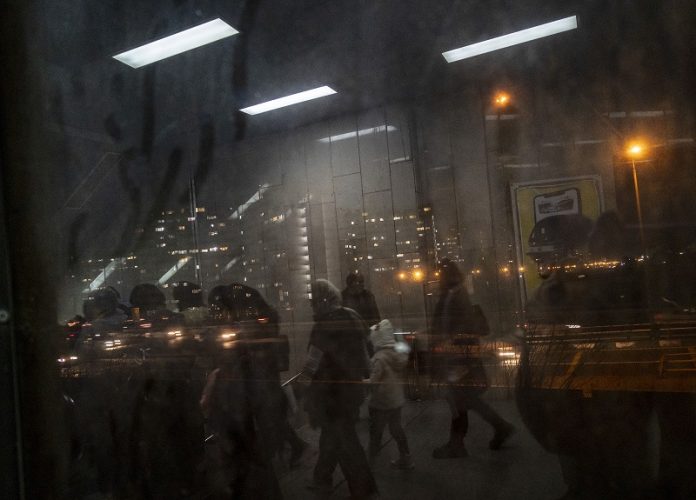
Female prisoners detained in Iran’s notorious Evin prison in Tehran issued a statement on Nov. 16 condemning the increasing number of executions by the Islamic Republic, while drawing attention to the plight of more than 40 political prisoners at imminent risk of execution.
“We, the women of Evin Prison, call on the people of Iran to respond actively and stop the Islamic Republic from sacrificing lives in its vendetta against freedom and equality movements,” the statement read. “This authoritarian regime seeks to respond to its repeated failures—domestically and internationally, its weakened military power, security breaches, and the collapse of its regional proxies—by taking the precious lives of political and civil activists.”
OPINION: The Solution to the ‘Iran Problem’ is Regime Change
Prince Reza Pahlavi : ‘The Alternative to the Islamic Republic is the Iranian nation’
The statement followed the announcement on Nov. 13 of death sentences for six young protesters involved in Iran’s ‘Woman, Life, Freedom’ uprising in 2022, who were accused of killing Arman Aliverdi, a member of the regime’s Basij volunteer military unit, in an apartment block in the town of Ekbatan.
The men have been identified as: Amir Mohammad Khosheghbal, 26; Alireza Bamerzpournak, 28; Alireza Kafaei, 34; Hossein Nemati, 27; Milad Armoun, 26; and Navid Najaran, 32.
“Iranian authorities use the death penalty as a tool of fear, particularly targeting ethnic minorities and political dissidents after unfair trials,” said Nahid Naghshbandi, the acting Iran researcher at Human Rights Watch in a Nov. 20 press release. “This brutal tactic aims to suppress any opposition to an autocratic government through intimidation.”
The six young men sentenced to death have been sponsored by four German lawmakers, who have urged the Iranian government to release them. Tobias B. Bacherle, Oliver Kaczmarek, Anne Monika Spallek, and Lisa-Kristin Kapteinat from the North Rhine-Westphalia state parliament issued a statement on Nov. 18 in which they expressed concern about the related legal proceedings.
“We express our profound concern over the devastating developments,” the lawmakers said in a Nov. 18 report published by the Iran International television network. “They were all sentenced to death by the brutal Iranian regime without a fair trial and under inhumane conditions.”
International human rights organizations also expressed concerns about the fairness of the court hearings and about the fact that no evidence was reportedly provided to connect the men to Aliverdi’s death. Babak Paknia, the lawyer for the defendants, said in a post on X (formerly Twitter) that the rulings could be appealed. Paknia added that the men had been badly tortured while in detention.
EXCLUSIVE: New UN Rapporteur on Iran to Focus on Gender Inequality, Executions
Responding to the sentences, former judge and Nobel Peace laureate Shirin Ebadi said: “Ekbatan became one of the main areas of protest, drawing to it many of the regime’s repressive forces. However, demonstrations in this area did not stop and it remains a center of resistance. Nighttime graffiti and various forms of protest continue in the area.”
“Therefore, it can be said that the death sentences issued are more about the regime’s deep animosity and its repressive apparatus’s hatred toward Ekbatan than the details of the case,” Ebadi said. “This is an act of intimidation and a threat against its citizens.”
Several human rights organizations noted an increase in death sentences against political prisoners and minority groups during the months of October and November, including against gender equality activists, Baha’is, members of the Baluch community and Kurds.
At least 711 individuals have been executed in Iran in 2024 as of Nov. 15, including 139 Kurdish prisoners and 13 political prisoners, according to the Norway based human rights group Hengaw. An additional 42 children were arrested, and 4 children were executed. The group also reported that 123 women were arrested, and 23 women were executed.
The Oslo-based Iran Human Rights organization (IHRNGO) recorded 651 executions in the first 10 months of 2024.
In October, one execution was carried out almost every four hours in Iran, according to Iran Human Rights Monitor, which also reported 178 executions in the month, the highest number of monthly executions in more than 20 years.
Amnesty International recorded at least 853 executions in Iran in 2023, with the Islamic Republic accounting for 74 percent of all recorded executions worldwide that year. The figures were published in its annual report on global executions published in May.
Islamic Republic Has Executed Some 70 Child Offenders Since 2010, Says Iran Human Rights

























